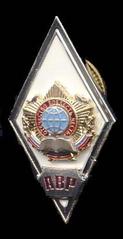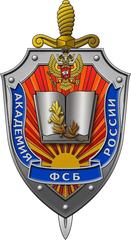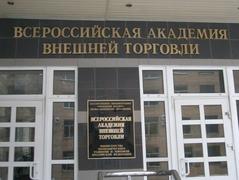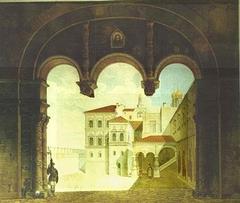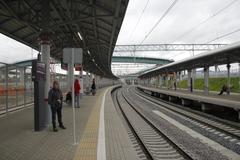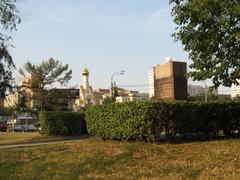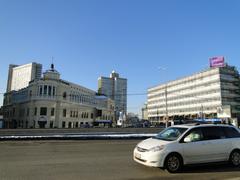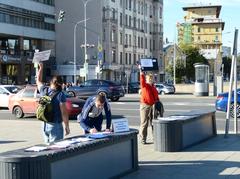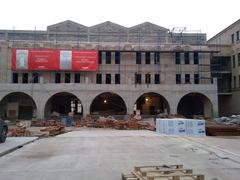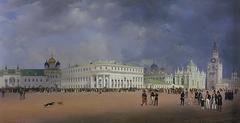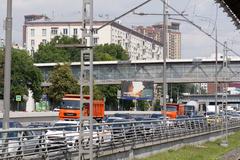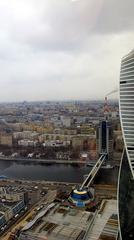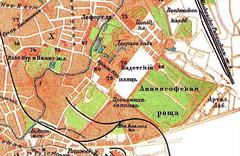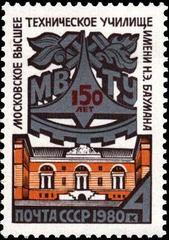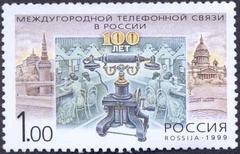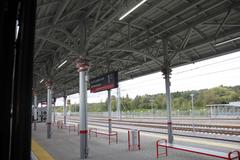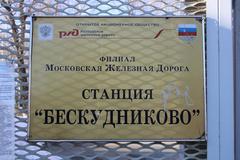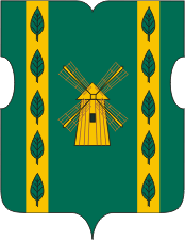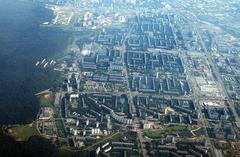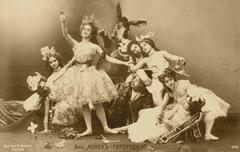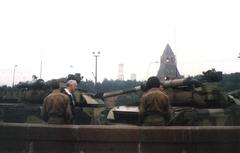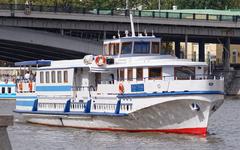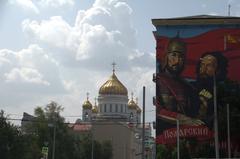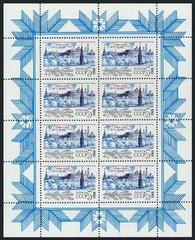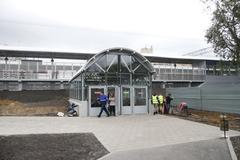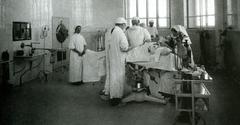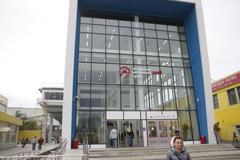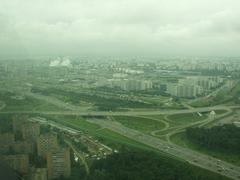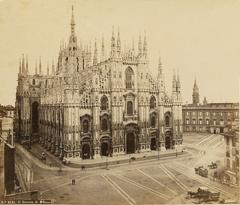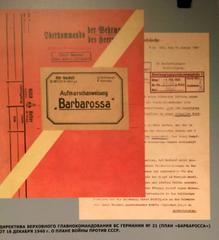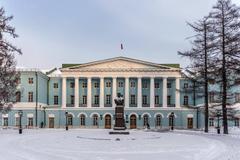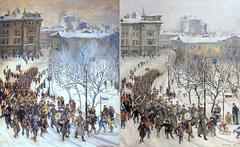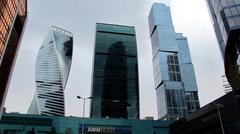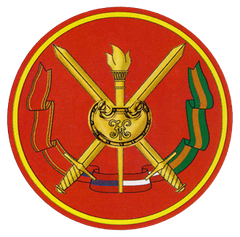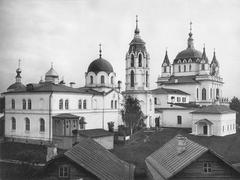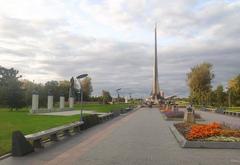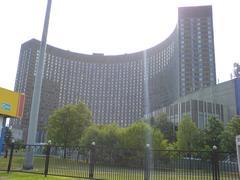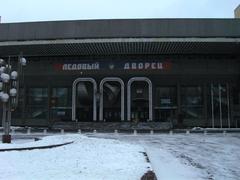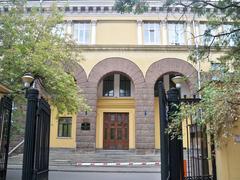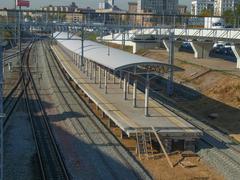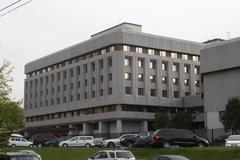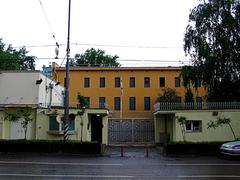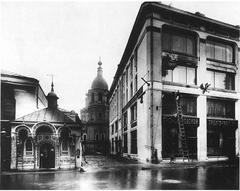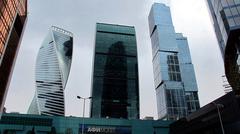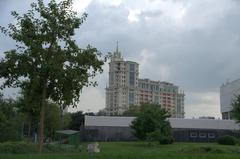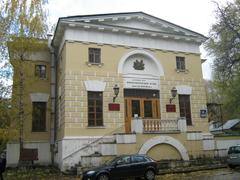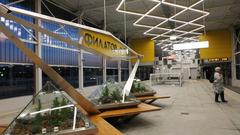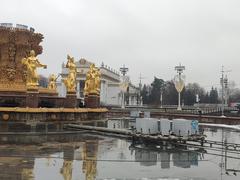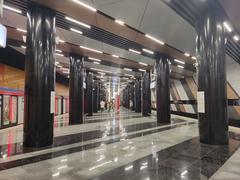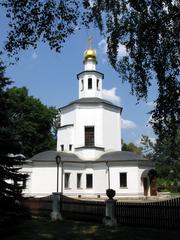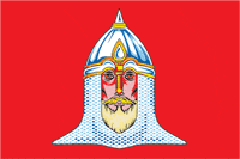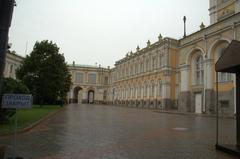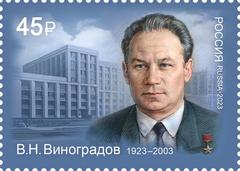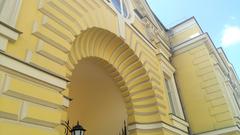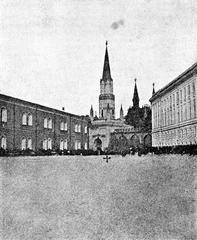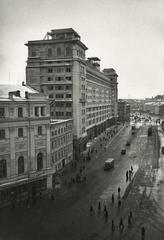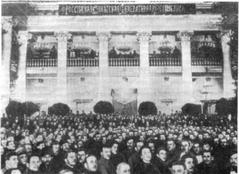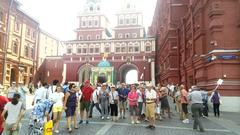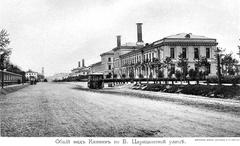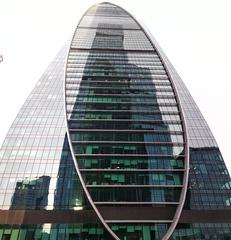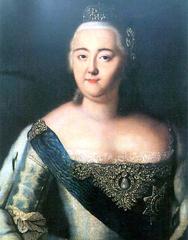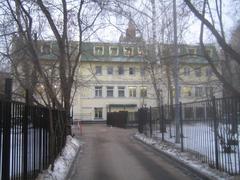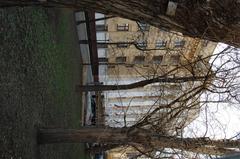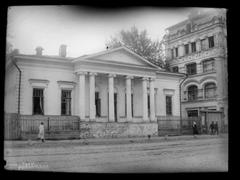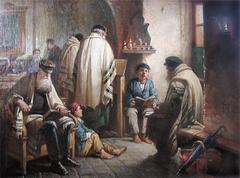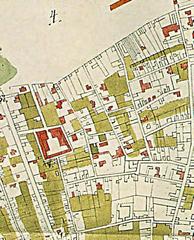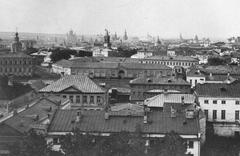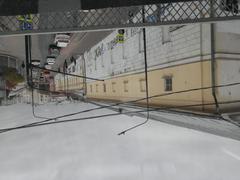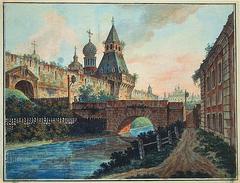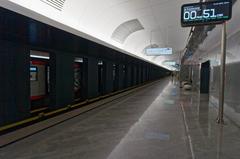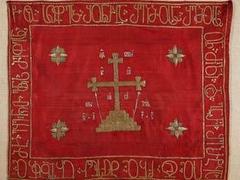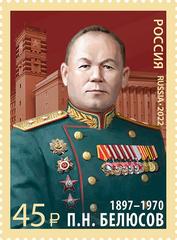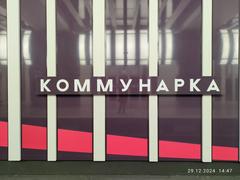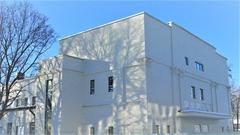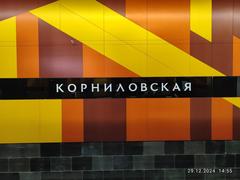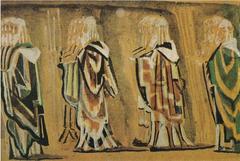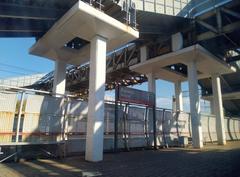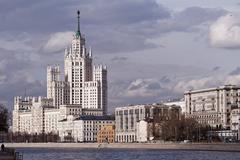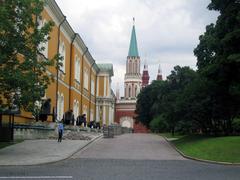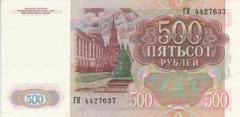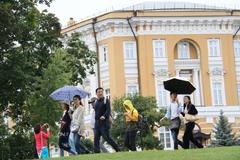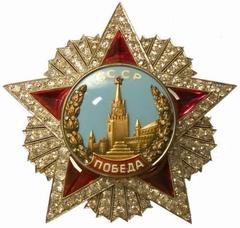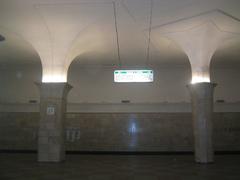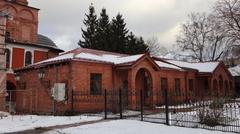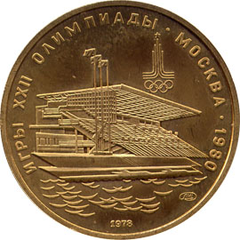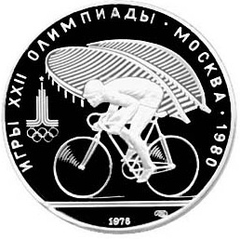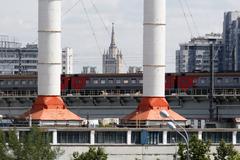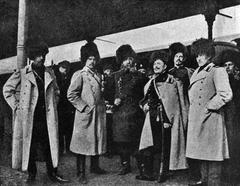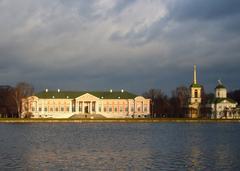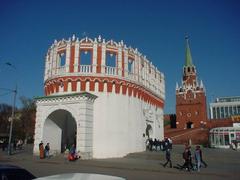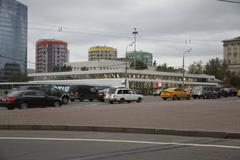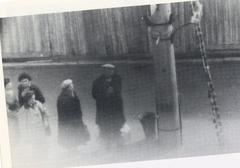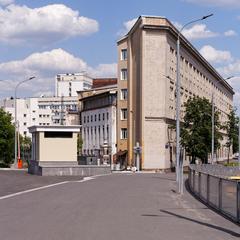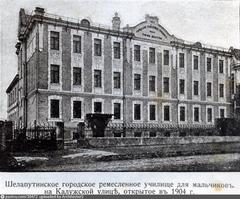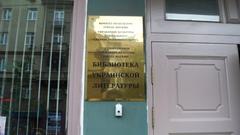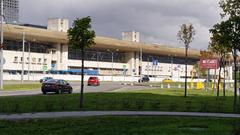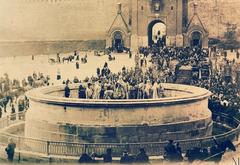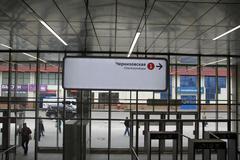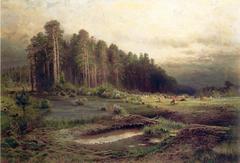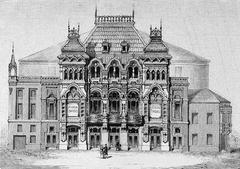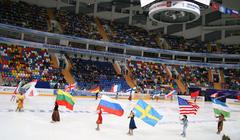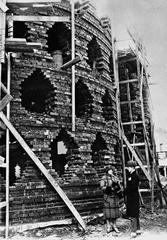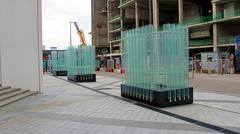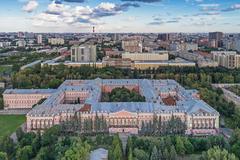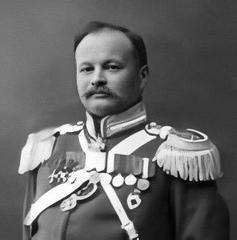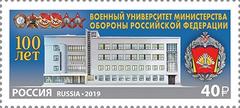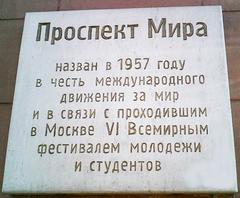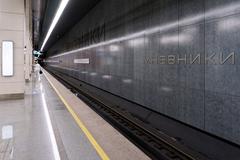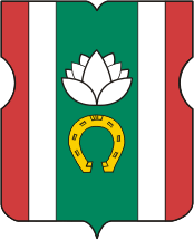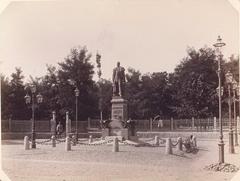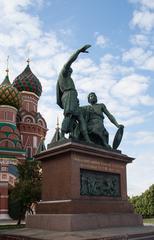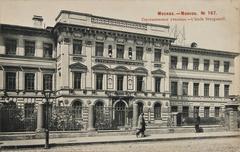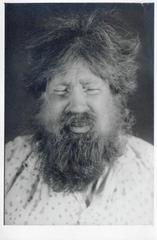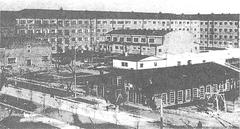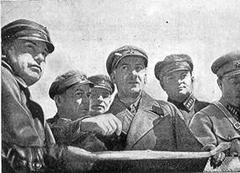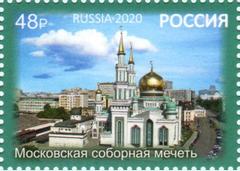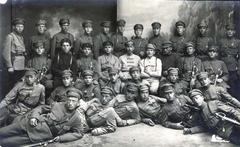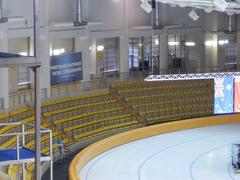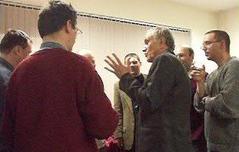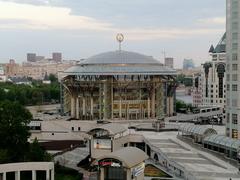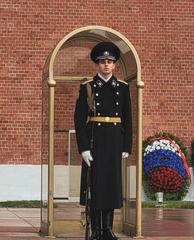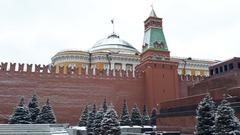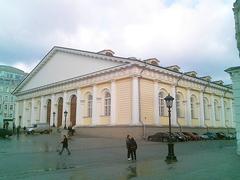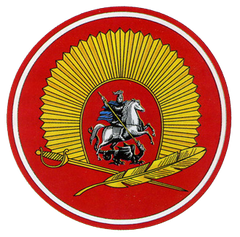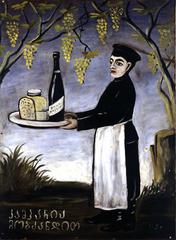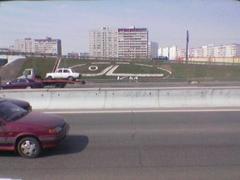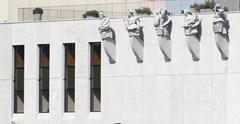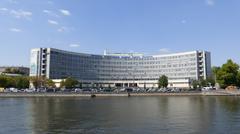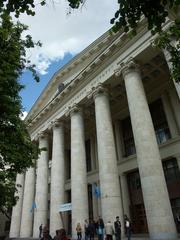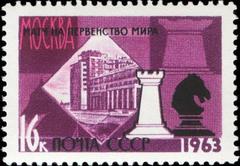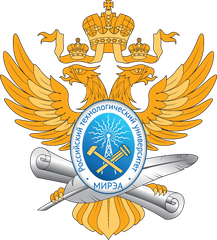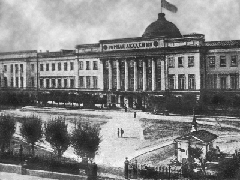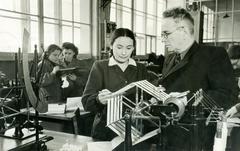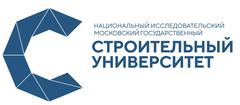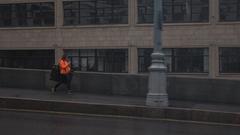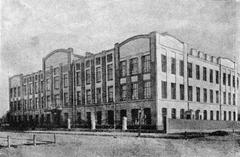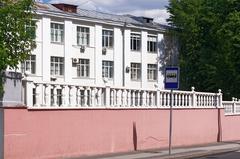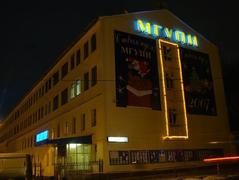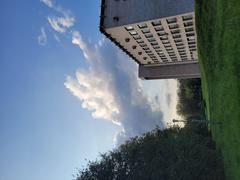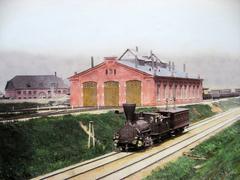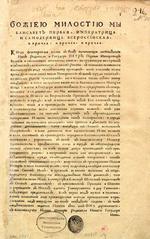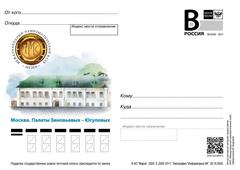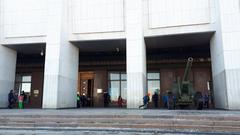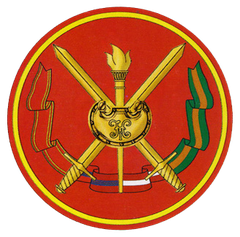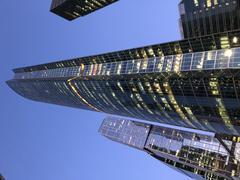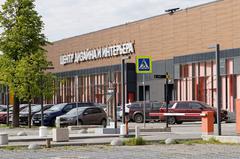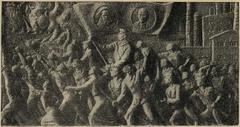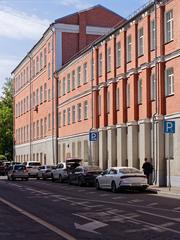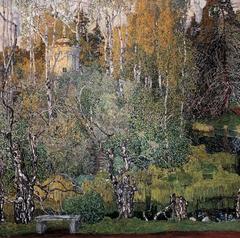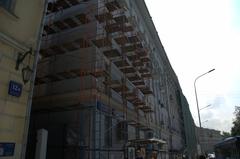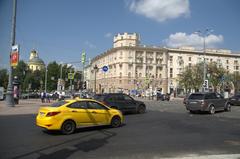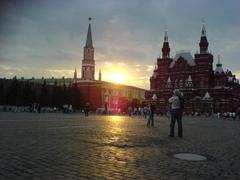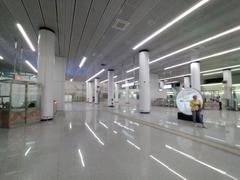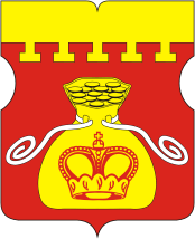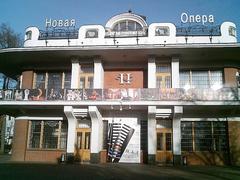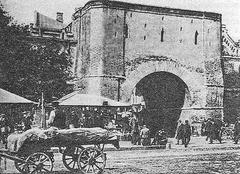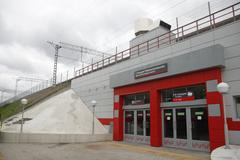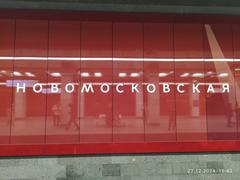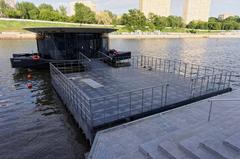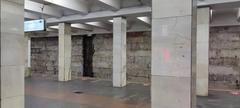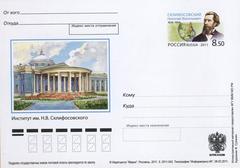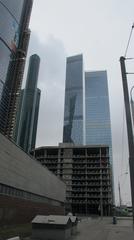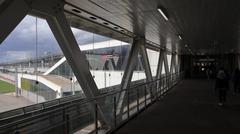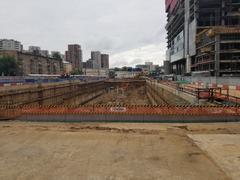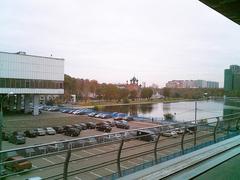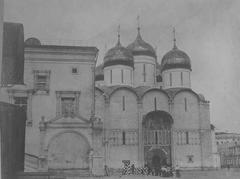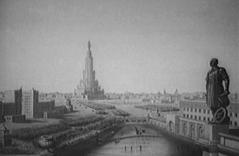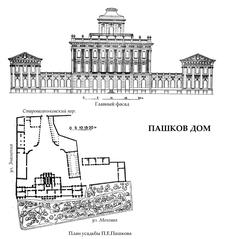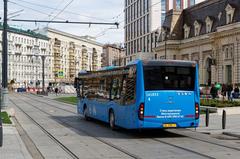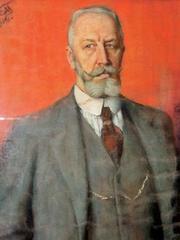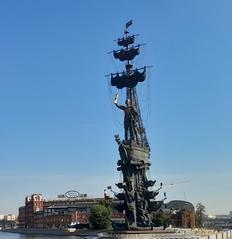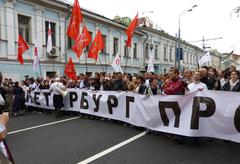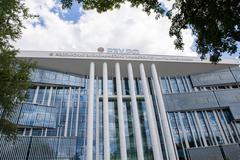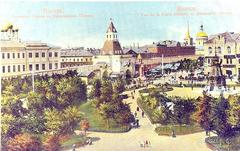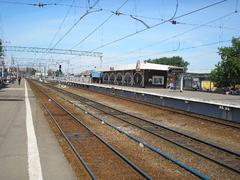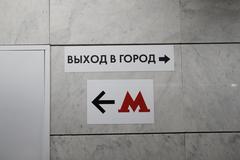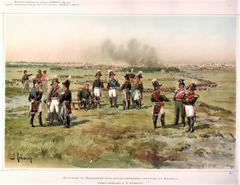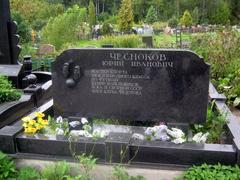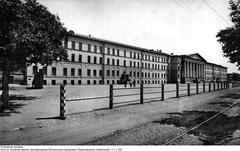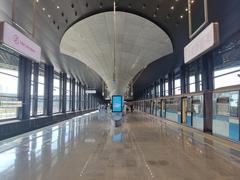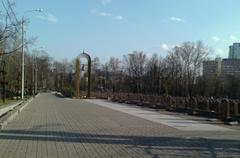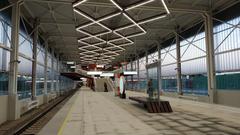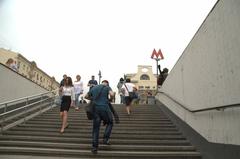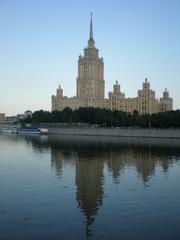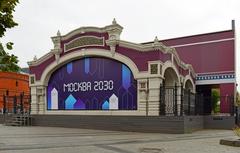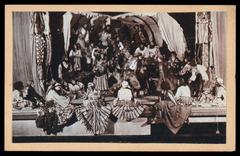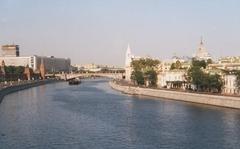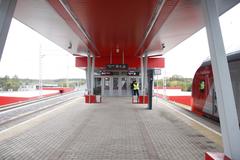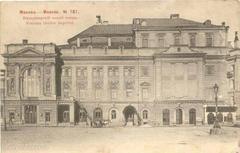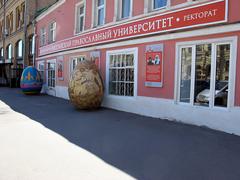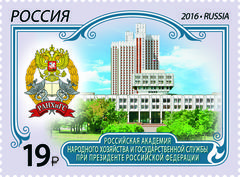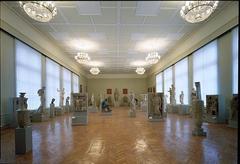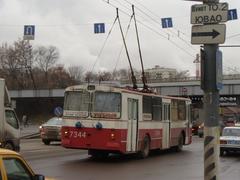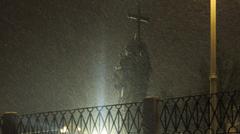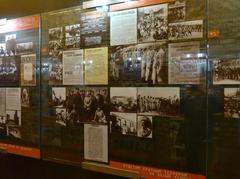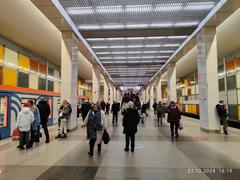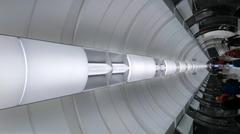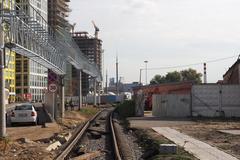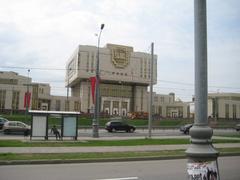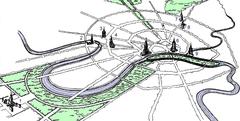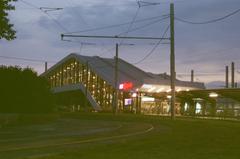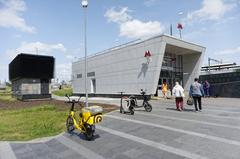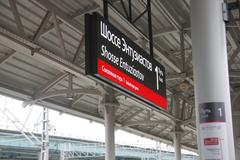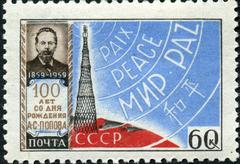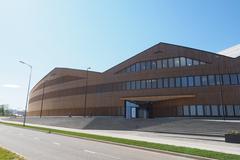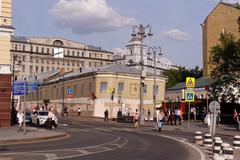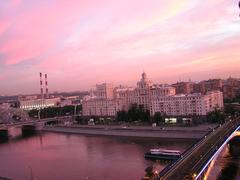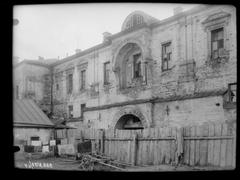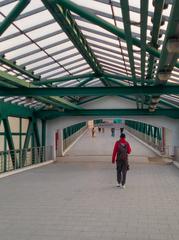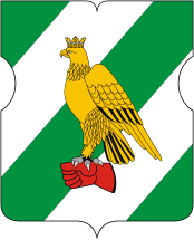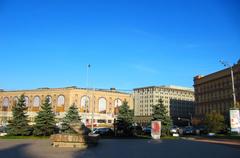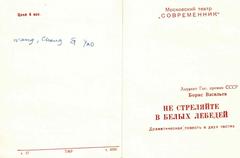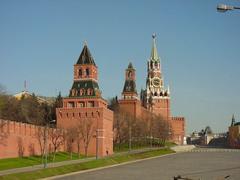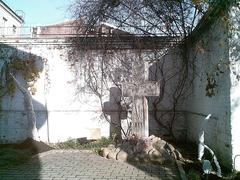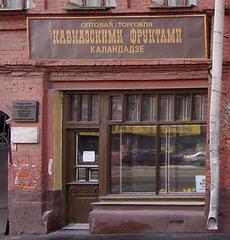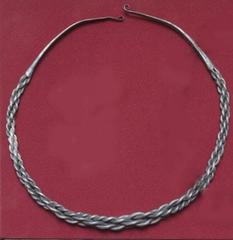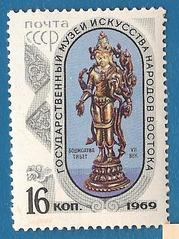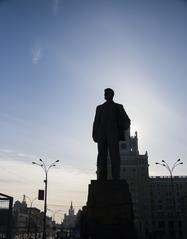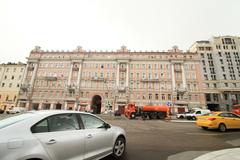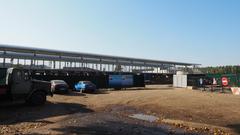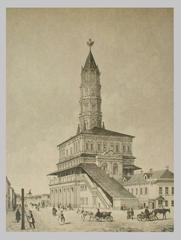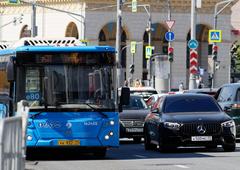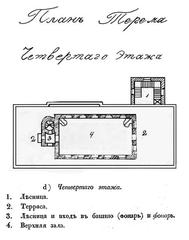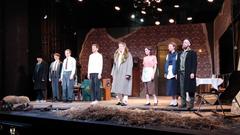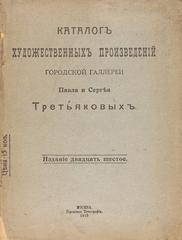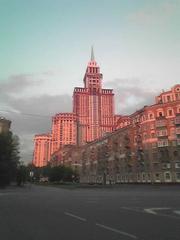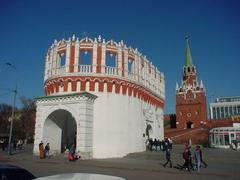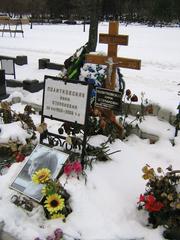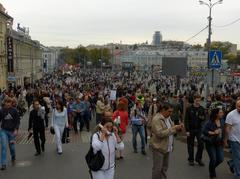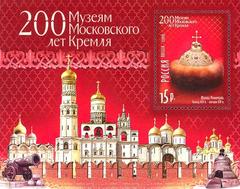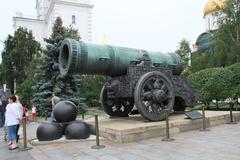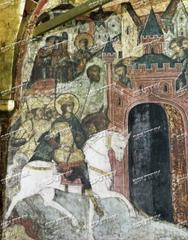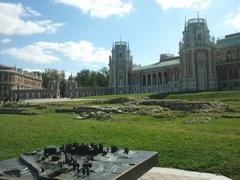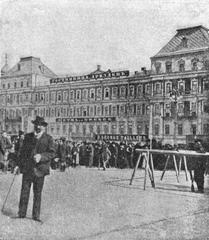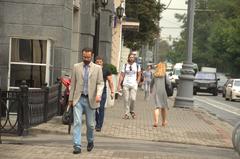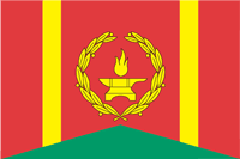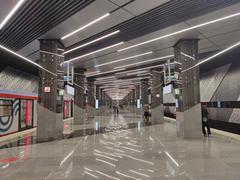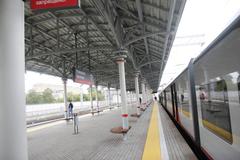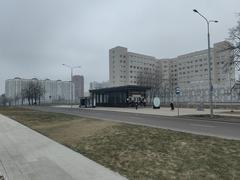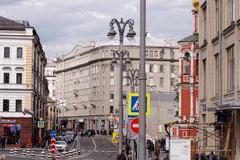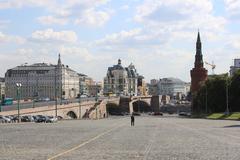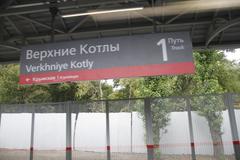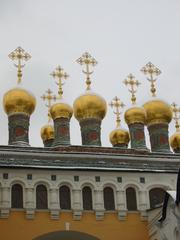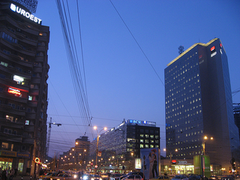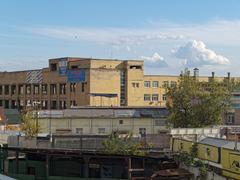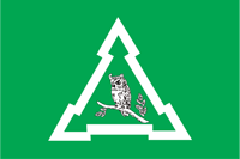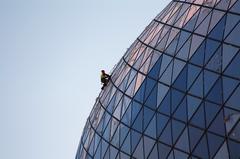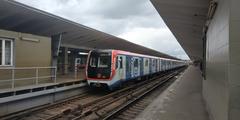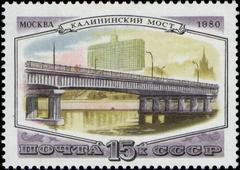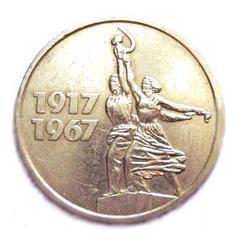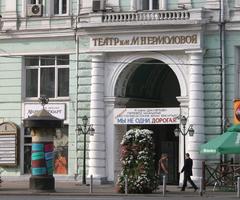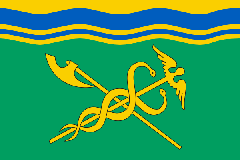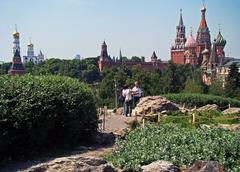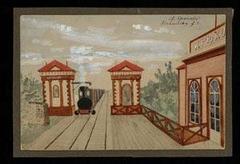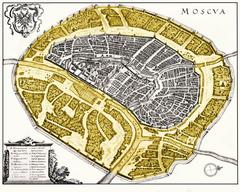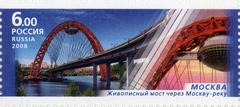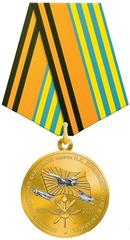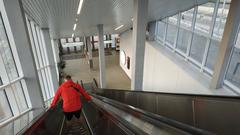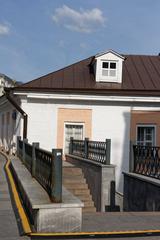Moscow Music Hall Visiting Guide: Tickets, Hours, and More
Date: 04/07/2025
Introduction
Nestled in the heart of Russia’s capital, the Moscow Music Hall—officially known as the Moscow International House of Music (Dom Muzyki)—stands as a premier cultural landmark that reflects Moscow’s rich musical heritage and its modern artistic spirit. Opened in 2003 as the first major classical music hall built in Moscow in over a century, the venue has become a symbol of the city’s cultural renaissance and its ambitions on the global stage. Its creation was the result of a partnership between the city government and cultural luminaries such as conductor Vladimir Spivakov, who has been instrumental in defining its artistic direction and bringing the National Philharmonic Orchestra of Russia to its stage (hum54-15.omeka.fas.harvard.edu; culture360.asef.org).
Renowned for its innovative architecture—designed by Yury Gnedovsky and crowned with Zurab Tsereteli’s monumental rotating treble clef—the hall is a beacon of modernist design and a departure from Soviet-era monumentalism. The complex features three distinct concert spaces, including the celebrated Svetlanov Hall, and hosts a broad spectrum of performances, from world-renowned orchestras to contemporary jazz and opera (HowToRussia).
This guide offers a comprehensive overview of the Moscow Music Hall’s history, architecture, visiting information, surrounding attractions, and practical tips for making the most of your visit to one of Moscow’s most vibrant cultural destinations.
Contents
- Origins and Conception
- Architectural Innovation and Symbolism
- Construction and Opening
- Role in Moscow’s Cultural Landscape
- Visiting the Moscow Music Hall
- Visiting Hours
- Tickets and Pricing
- Getting There
- Accessibility
- Guided Tours and Features
- Nearby Attractions
- Notable Events and Milestones
- Legacy and Influence
- Frequently Asked Questions (FAQ)
- Summary of Key Facts
- Conclusion and Call to Action
Origins and Conception
The Moscow Music Hall (Moscow International House of Music or MIPAC) was conceived in the late 1990s and officially opened in 2003. Its establishment filled a significant cultural gap, providing a modern platform for Russian and international performing arts after decades of Soviet isolation. With support from both public and private sectors and leadership from figures like Vladimir Spivakov, the venue quickly became home to the newly formed National Philharmonic Orchestra of Russia (hum54-15.omeka.fas.harvard.edu).
Architectural Innovation and Symbolism
Architect Yury Gnedovsky designed the hall as a cylindrical glass-and-steel structure, visually distinct from Moscow’s traditional neoclassical and Soviet buildings. The transparent facade and open spaces symbolize accessibility and the city’s embrace of internationalism. The structure is topped by Zurab Tsereteli’s 9.5-meter-tall rotating treble clef, a striking symbol of the hall’s dedication to music and openness to the world (hum54-15.omeka.fas.harvard.edu).
Construction and Opening
Construction began in the early 2000s and was completed swiftly, with the official inauguration in September 2003. The opening events featured the National Philharmonic Orchestra of Russia and guest performances from international stars. Critics praised the hall’s acoustics, design, and its role in the city’s cultural regeneration (culture360.asef.org).
Role in Moscow’s Cultural Landscape
Since its opening, the Moscow Music Hall has revitalized the city’s music scene, serving as a preferred venue for symphony orchestras, chamber ensembles, jazz bands, opera, and ballet. It houses three main concert halls across different levels, and a summer terrace for open-air concerts, allowing for a diverse and simultaneous program of events (culture360.asef.org).
Visiting the Moscow Music Hall
Visiting Hours
- Performance Events: Typically held in the evenings and weekends.
- Box Office: Open Monday–Saturday, 11:00 AM–7:00 PM.
- Venue Hours: Generally open daily from 10:00 AM–10:00 PM; check the official website for event-specific timings.
Tickets and Pricing
- Purchase: Online via the official site or at the box office.
- Prices: Vary by event; generally from 1,000 to 10,000 RUB. Discounts are available for students, seniors, and children.
- Entry Requirements: From March 2025, an approved ID may be required (official announcement). Early booking is recommended for high-demand performances.
Getting There
- Address: Kosmodamianskaya Embankment, 52-8, Moscow, Russia.
- Metro: Nearest station is Paveletskaya (lines 2 & 5), about a 10-minute walk.
- By Car: Limited parking available; public transportation is advised.
Accessibility
The venue is fully accessible, with ramps, elevators, and reserved seating for visitors with disabilities. Staff can assist with special needs requests (HowToRussia).
Guided Tours and Features
Guided backstage tours are available by appointment, offering an insider’s perspective on the venue’s architecture and history. The lobby features an iconic photo spot beneath the rotating treble clef.
Venue Layout and Facilities
- Svetlanov Hall: Main auditorium (1,735 seats) with renowned acoustics.
- Chamber Hall: Intimate space for smaller ensembles (532 seats).
- Theatre Hall: Versatile for jazz, theatre, and crossover events (558 seats).
- Amenities: Cloakrooms, restrooms, cafes, bars, and a gift shop.
Performance Schedule and Programming
Programming includes regular concerts by the National Philharmonic of Russia, solo recitals, thematic series, and international collaborations. The calendar features tributes to composers like Tchaikovsky and Gershwin, and special family-friendly performances (official program).
Audience Experience
Every seat offers a clear view and excellent sound, thanks to advanced acoustic engineering. The setting is elegant but welcoming, with smart-casual attire suitable for most events. Multilingual staff are available to assist international guests.
Dining and Refreshments
Onsite cafes and bars serve snacks, coffee, and beverages before concerts and during intermissions. Numerous restaurants are located nearby on the embankment and in the city center.
Practical Tips
- Arrive early: Doors open 30–45 minutes before shows.
- Photography: Permitted in public areas but not during performances.
- Cloakroom: Usage is customary.
- Transport: Metro is recommended for convenience.
Safety and Security
Expect security checks at entrances. The area is well-lit and safe for evening visits (Express to Russia).
Souvenirs and Merchandise
The gift shop offers music CDs, books, and branded merchandise.
Seasonal Considerations
Visit from May to September for mild weather; winter offers a magical experience but dress warmly (MakeMyTrip).
Booking and Planning
Popular shows sell out quickly; book in advance via the official website.
Nearby Attractions
Enhance your visit by exploring nearby landmarks:
- Cathedral of Christ the Saviour
- Gorky Park
- State Tretyakov Gallery
- Kremlin and Red Square
- Bolshoi Theatre
- Zaryadye Park
All are easily accessible by metro or on foot (Holidify; Moscow.Info).
Dining, Shopping, and Leisure
- Cafe Tchaikovsky: Popular for light meals (Trip101).
- Izmailovsky Market: For souvenirs (Holidify).
- Family Activities: Moscow Zoo, Sokolniki Park, and more.
Notable Events and Milestones
- Inaugural performances by the National Philharmonic Orchestra of Russia under Vladimir Spivakov.
- Appearances by the Vienna Philharmonic, London Symphony Orchestra, and acclaimed soloists.
- Host to major international festivals, state ceremonies, and charity galas (culture360.asef.org).
Legacy and Continuing Influence
The Moscow Music Hall has set a new standard for performance venues in Russia, influencing the development of similar facilities nationwide and nurturing emerging talent through masterclasses and educational initiatives (hum54-15.omeka.fas.harvard.edu).
Frequently Asked Questions (FAQ)
Q: What are the opening hours?
A: The venue is open daily, 10:00 AM–10:00 PM; box office from 11:00 AM–7:00 PM. Performance times vary.
Q: How do I buy tickets?
A: Online via the official website or at the box office.
Q: Is the venue wheelchair accessible?
A: Yes, with ramps, elevators, and reserved seating.
Q: Are guided tours available?
A: Yes, by appointment.
Q: Can I park nearby?
A: Limited parking is available; public transport is recommended.
Q: Is photography allowed?
A: In public areas only; not during performances.
Summary of Key Facts
- Opened: 2003
- Architectural Style: Modernist, glass and steel
- Signature Feature: 9.5-meter rotating treble clef by Tsereteli
- Main Halls: Svetlanov, Chamber, and Theatre
- Location: Kosmodamianskaya Embankment, central Moscow
- Role: Premier venue for Russian and international music, symbol of Moscow’s cultural revival
Conclusion and Call to Action
The Moscow Music Hall is more than a concert venue—it is a living symbol of Moscow’s ongoing cultural renaissance, offering visitors an inspiring blend of world-class performances, innovative architecture, and a welcoming atmosphere. Its proximity to major historical and cultural sites allows for a rich, multi-faceted exploration of the city.
To plan your visit, check the official website for current schedules, ticketing, and entry requirements. Download the Audiala app for personalized event recommendations and follow their social media for the latest updates.
Immerse yourself in the heart of Moscow’s vibrant arts scene—visit the Moscow Music Hall and experience the best of Russian and international culture.
Sources and Further Reading
- Moscow Music Hall: History, Visiting Hours, Tickets & Cultural Highlights (hum54-15.omeka.fas.harvard.edu)
- Moscow International House of Music: Visiting Hours, Tickets & Guide (official website; HowToRussia)
- Cultural Significance (Wikipedia)
- Moscow Music Hall: Your Guide to Visiting and Exploring Nearby Attractions (Holidify; Trip101; Moscow.Info; TravelerBibles)
- Express to Russia
- Bandsintown
- MakeMyTrip
